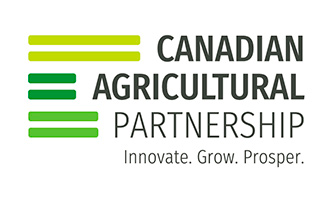Key Result
This project will provide yield when supplemental pollinators are added prior to the time of heat / drought stress, as well as during the stress event, which may help plants recover lost yield.
Project Summary
Overview
As the agricultural industry contends with unpredictable weather caused by changing climate, it is critical to be forearmed with strategies to proactively mitigate the effects on crop yield and bee health and improve sustainability and food security. This project will provide new and needed information on the production of canola in anticipation of increased frequency of extreme weather events, with the overall goal of increasing the sustainability of canola production across the Prairies in the face of environmental change.
By examining the yield of canola crops exposed to heat / drought stress with and without pollinators at different growth stages, this research will determine the potential for pollinators to partially rescue the crop from the detrimental effects of these extreme weather conditions.
This project will also provide beekeepers with valuable information about the resources plants are able to produce for pollinators when they are faced with environmental stress.
Purpose
The information provided by this project will enable farmers to make decisions about if and when to supplementally pollinate and provide yield benefit information they can use to inform their negotiations with beekeepers about remuneration for pollination services. If effects of drought and heat on crop yield are found in this project as anticipated, the inclusion of multiple varieties will demonstrate some of the variation in this effect.
While it is not possible to test all available canola varieties in this study, it will demonstrate the importance of heat/drought tolerance to encourage life science companies to test these traits include this in their marketing so that famers can make informed choices in drought-prone areas. In addition, this project will provide information to beekeepers on the effect of heat / drought on resources (nectar and pollen) available to bees.
As such, benefits could potentially be gained by growers that anticipate stressful weather and provide supplemental pollinators or pollinator habitat, or plant varieties less susceptible to drought / heat stress in anticipation, as well as by farmers faced with unanticipated drought.
Objectives
The specific objectives of this project are:
(i) To provide information that can be used to manage canola production in the face of extreme weather such as drought and heat, with specific reference to supplemental pollination.
(ii) To provide information to beekeepers as to the effects of drought and heat on nectar and pollen sources. Specifically, the outcomes of the proposed project will include:
• Analysis of the effects of heat and drought on seed yield and quality, with and without supplemental pollination by bees, for five varieties of canola.
• Increased awareness of the effects of climate on crop production
• Information on the benefits of supplemental pollination prior to heat / drought stress versus at the time of the stress event (i.e. can yield be ‘rescued’ by bees)
•Information for both growers (yield benefits of pollination during stress) and beekeepers (potential impacts of stress on honey yields and pollen quality) to inform pollination contract negotiations
• Analysis of the independent and combined effects of drought and heat on nectar and pollen production in canola, across five varieties. Specific analyses will include: nectar
• volume, nectar sugar content (glucose:sucrose:fructose), nectar sugar concentration, pollen production, pollen nutritional analyses (protein content).





